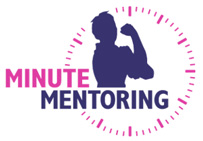Eboni K. Williams currently serves as a FOX News Channel (FNC) contributor, providing political and legal analysis and commentary on today’s biggest headlines. She’s also a frequent guest host on New York City’s legendary talk radio station 77 WABC.
Prior to her role with FOX News Channel, Eboni served as a CBS News correspondent, HLN contributor and talk radio host for Los Angeles’ KFI AM640, sharpening her broadcast experience while sharing her expertly analyzed views on various culturally relevant topics. She’s also had frequent guest appearances on CNN and the NFL Network.
Ms. Williams was accepted to and enrolled in The University of North Carolina at Chapel Hill at the age of 16, where she received her Bachelor of Arts degree.
Ms. Williams began her professional experience in Louisiana in the wake of Hurricane Katrina, where, as a law student, she clerked for the Louisiana Secretary of State and the Louisiana Attorney General’s Office. There, she also worked for various politicians, including New Orleans City Council Members, supporting efforts to rebuild the city of New Orleans.
She went on to specialize in family law and civil litigation, providing legal consult on high-profile divorce, spousal support, and child custody cases. Ms. Williams then transitioned into practicing as a public defender, as well as a private defense lawyer in North Carolina and throughout the Greater Los Angeles area. She has represented clients in criminal matters including murders, rapes, high volume drug cases, sex crimes and federal offenses.
Ms. Williams’ experiences over the years have grown her perspective, allowed many opportunities for lessons learned, and strengthened her personal commitment to informing the public with the facts plainly stated, but her opinion never lost.
Ms. Williams received her BA in Communications and African-American Studies from the University of North Carolina at Chapel Hill, and a J.D. from Loyola University New Orleans College of Law.
Short answer; Absolutely! The benefits that come with obtaining a post-graduate or professional degree transcend gender, but it’s ESPECIALLY helpful for women. Unfortunately gender stereotypes around women being less professionally capable continue to persist. When you walk into a room with a JD, MBA or other advanced degree, you gain instant credibility that can alleviate SOME of those stereotypes.
At 6 years old I knew I wanted to be a lawyer…even though I didn’t fully understand exactly what a lawyer was, lol. Basically I was a curious and talkative child, so people would tell me (and my mother) that I would make a great lawyer. I took the suggestion and ran with it, even though at the time the only lawyers I “knew” were on TV. I didn’t meet a real life lawyer until I started law school.
Most-career defining decision I made was to leave my six-figure associate attorney job and take a 50 percent pay cut to work at the public defender’s office. The firm job was the “marquee position” and there is a definitely a path to success there for some. But I wanted to train to be a courtroom advocate early in my career and nothing cuts your teeth quicker than working as a PD or DA. On day-one at the PD’s office I inherited a caseload of over 200 files and had to achieve results for each one of those clients.
Its called the “practice of law” for a reason (Same with the practice of medicine or many other professions). Many ambitious young people are obsessed with perfection. I still suffer from it. What I wish I knew earlier is that missteps are inevitable and no one is going to burn you at the stake for them. The lessons you gain from early mistakes are invaluable and will help you perfect your craft for an entire career.
For example, as a baby lawyer I called a case for trial without looking at ALL of the physical evidence before the prosecution’s witness took the stand. My client described his version of what the evidence was going to look like, and I took his word for it. Once the DA produced the actual evidence in the middle of trial it looked nothing like my client described. I was horrified! But I never ever made that mistake again!
Biggest mistake I see is strictly following the crowd or expectations. Most schools will set up on-campus interviews and career counselors will lay out a traditional path for all students to follow. Don’t be afraid of cultivating a new path for yourself. There is nothing wrong with on-campus recruiting, but don’t limit yourself to those options and career plans. Know that you can always start down a road and then make a different decision later. You’re not married to the path you chose as a fresh graduate, you’re the CEO of your career and you better act like it!
I’m still working on this one. Balance is tough, even for single women. Balancing a full time career with being a wife and mother is obviously ridiculously challenging. But not many people talk about when to make effort and make time for effective dating/ personal relationship building as you’re grinding out these masters and doctorate degrees.
I think the greatest challenge is confidence. When you’re starting out you’re going straight from a classroom to a professional environment. Certainly as many internship and pre-professional opportunities that you can secure, the better! But ultimately the transition from student to professional is tough for all, but especially women. Often, as women we hold ourselves to a standard of perfection immediately, where I’ve seen men tend to give themselves permission to “figure it out as they go.”
My advice is to give yourself that same permission and keep your focus in the process.
My advice is to become on expert on something…anything. I don’t care if it’s the law, real estate, stocks, sports, tech, politics or media. Become so well versed in something that you would be useful as the “go-to” on an issue. Being a generalist is great, and focusing on have a broad worldview is essential. But its helpful to really master an area or two.
1) When deciding between action or inaction… go with action…it usually serves you well.
2) Create a small (2-5 people) board of directors for yourself. These individuals should know you very well and you should trust and respect them. Use them as your sounding board for any professional issue or decision.
3) Trust yourself. Develop a strong internal compass. The piece of advice about having a personal board of directors is critical, but never mistake that for your own voice. Having people that respect you and your best interest is wonderful, but no one will advocate for you or put your best interest first like you will!

